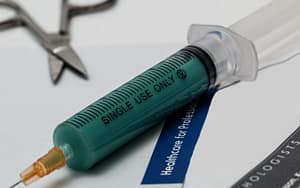Biosimilar Medications in Crohn’s Disease
What is a Biosimilar Drug?
 The traditional treatment of Crohn’s disease involves the use of biologic medications, such as Remicade andHUMIRA. Biologics are medications that are made from living organisms. Unlike conventional, small molecule drugs which are made up of pure chemical substances, biologics are highly complex molecules produced in a multi-step process from living cells. This distinction becomes important when the manufacture’s patent exclusivity period comes to an end.
The traditional treatment of Crohn’s disease involves the use of biologic medications, such as Remicade andHUMIRA. Biologics are medications that are made from living organisms. Unlike conventional, small molecule drugs which are made up of pure chemical substances, biologics are highly complex molecules produced in a multi-step process from living cells. This distinction becomes important when the manufacture’s patent exclusivity period comes to an end.
When the patent expires on a small molecule drug, such as penicillin, Aspirin or Lipitor, a different company can easily identify the chemical structure and produce an identical generic copy. The cost for generic medications is usually a fraction of what the original manufacturer charged for the brand name medication. However, because biologics are produced using a living cell line, an exact copy can only be produced by the original manufacturer. Enter the world of biosimilar drugs.
Similar but Not the Same
A biosimilar drug is a medication which is highly similar to a previously approved FDA biologic medication. Biosimilars have no clinical meaningful differences in terms of safety and effectiveness from their patented counterparts. To gain FDA approval, a biosimilar is required to have the same mechanism of action, route of administration, dosage form and strength as its original counterpart.
An interchangeable biologic product must meet the standards set out for biosimilars, plus it must prove that it will produce the same clinical result as the original biologic.
Biosimilar Drugs are Not Generic
 A biosimilar drug is not a generic version of a biologic medication. Generic drugs are copies of brand-name drugs, have the same active ingredient, and are the same as those brand name drugs in dosage form, safety, strength, route of administration, quality, performance characteristics and intended use. That means the brand-name and the generic are bioequivalent. Biosimilars are highly similar to the reference product to which they were compared but have allowable differences because they are made from living organisms. Biosimilars also have no clinically meaningful differences in terms of safety, purity, and potency compared to the reference product.
A biosimilar drug is not a generic version of a biologic medication. Generic drugs are copies of brand-name drugs, have the same active ingredient, and are the same as those brand name drugs in dosage form, safety, strength, route of administration, quality, performance characteristics and intended use. That means the brand-name and the generic are bioequivalent. Biosimilars are highly similar to the reference product to which they were compared but have allowable differences because they are made from living organisms. Biosimilars also have no clinically meaningful differences in terms of safety, purity, and potency compared to the reference product.
The primary reason biosimilar drugs are appealing to Crohn’s disease patients is because the cost is expected to be far less than their biologic counterpart. For example, HUMIRA costs about $1000 USD per vial. The biosimilar Exemptia retails for around $200 USD per vial.
What Biosimilar Drugs are Available for Crohn’s Disease?
The following chart provides information about biosimilar medications for Crohn’s disease and where the medication is available. Bear in mind, due to different patent expiration dates, some biosimilars may be available in certain markets and not in others.
| Biologic Drug | Biosimilar Drug | Availability |
| Remicade (infliximab) | Inflectra | Europe
FDA approved in the United States but not yet available. |
| Remsima | 71 countries around the world; no US approval. | |
| Renflexis | Korea | |
| Infimab | India | |
| HUMIRA (adalimumab) | Exemptia | India |
| Adfrar | India |
